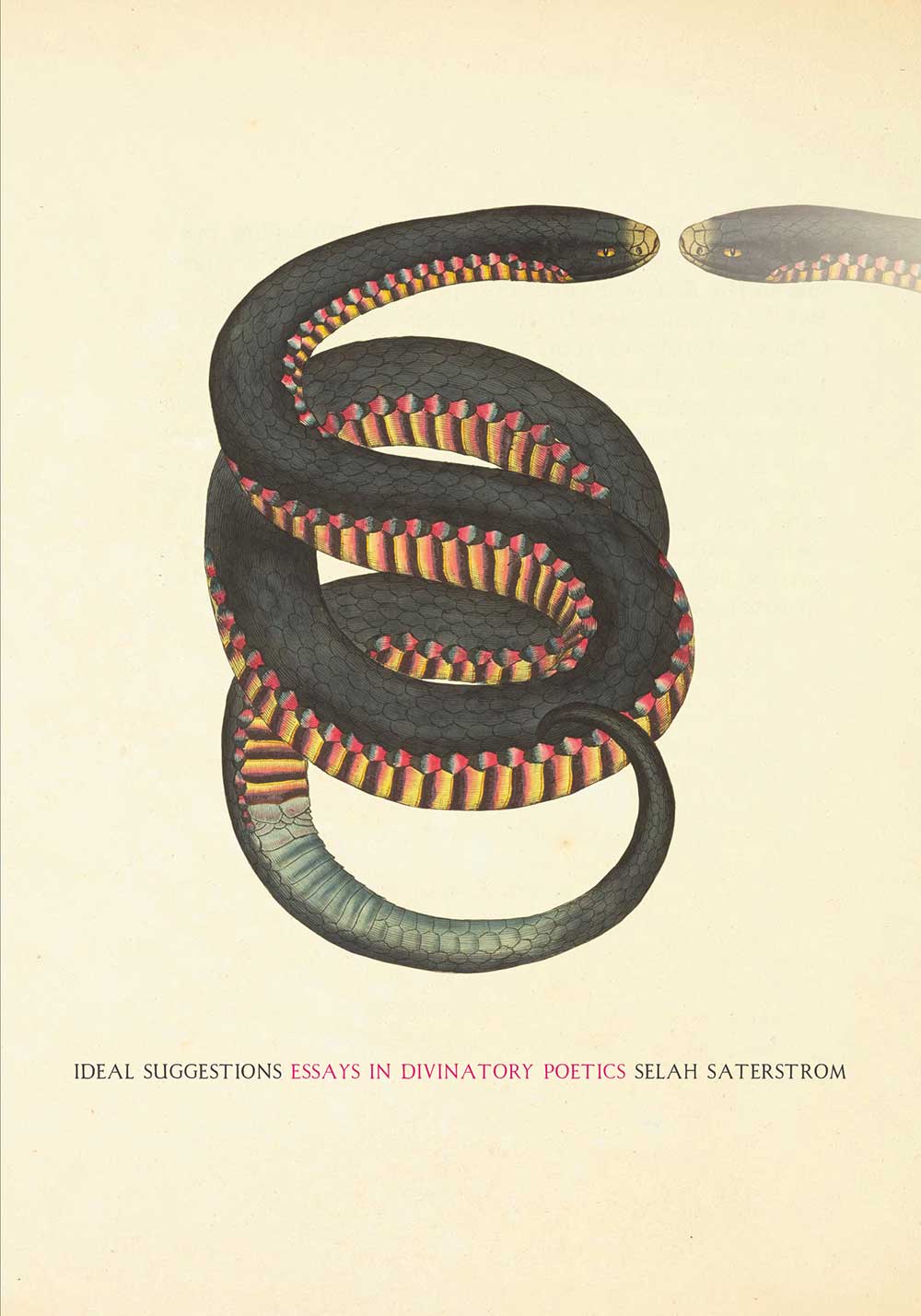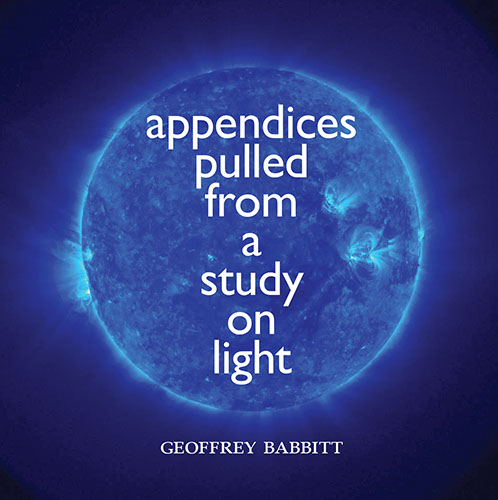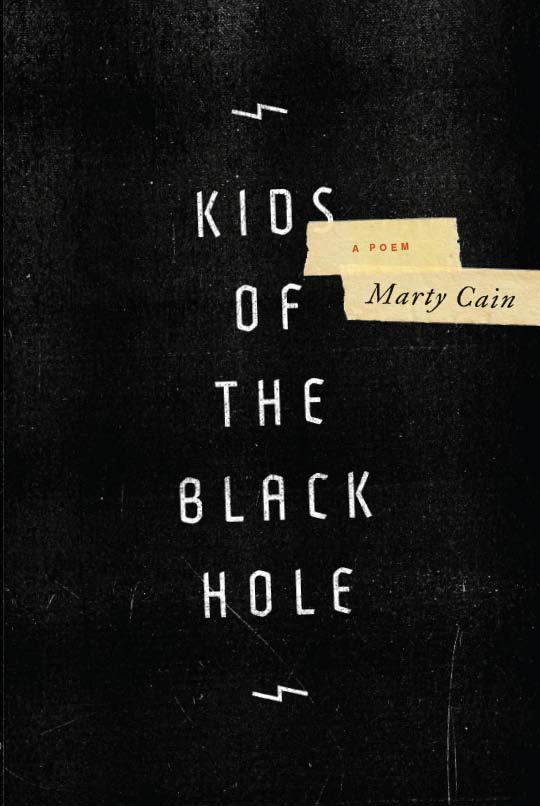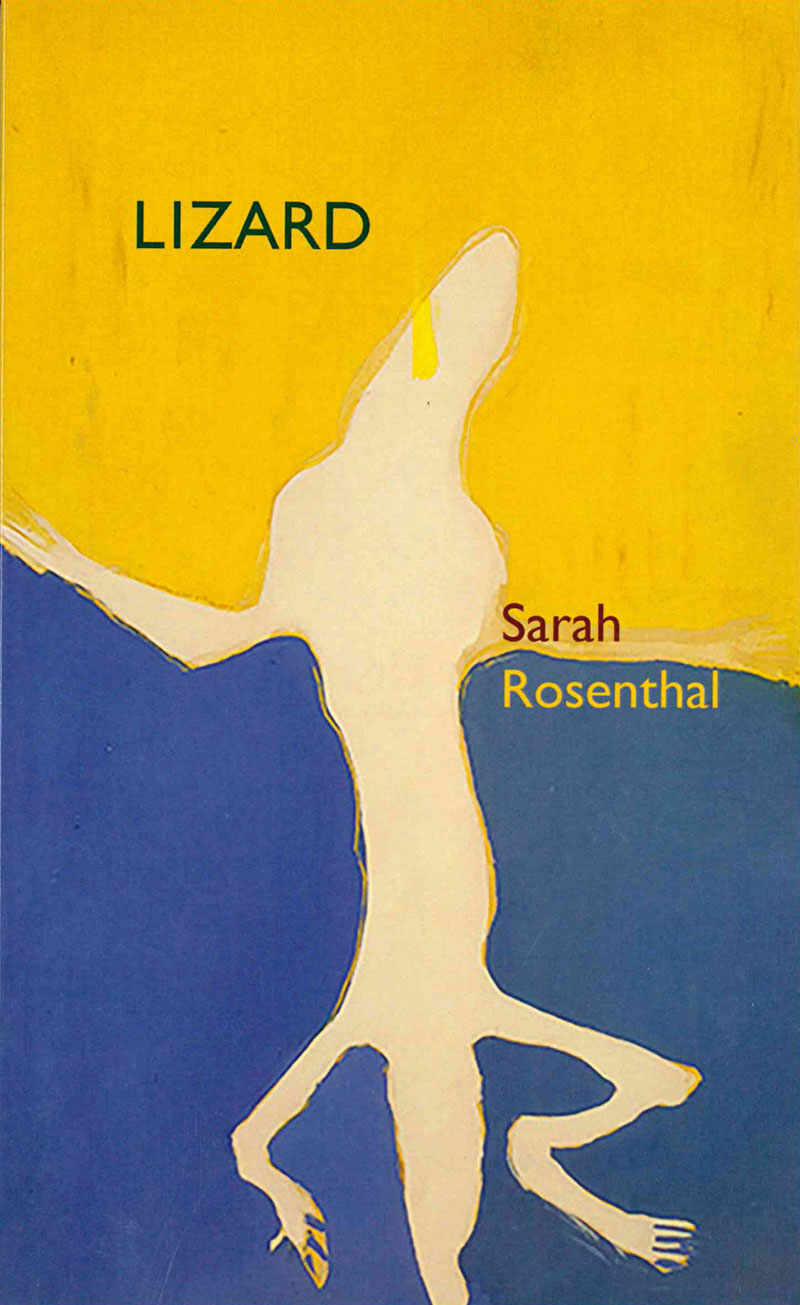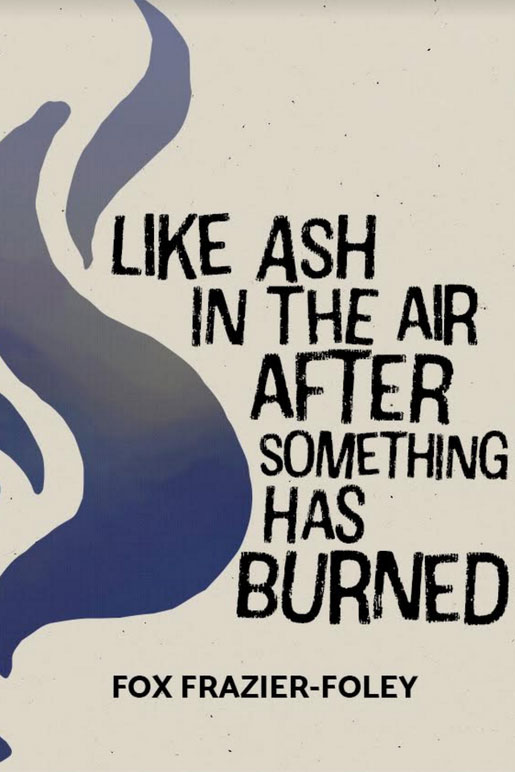Book Reviews | Tarpaulin Sky Magazine
TELLING YOU WHAT TO THINK SINCE 2003 | IMAGE: NOAH SATERSTROM
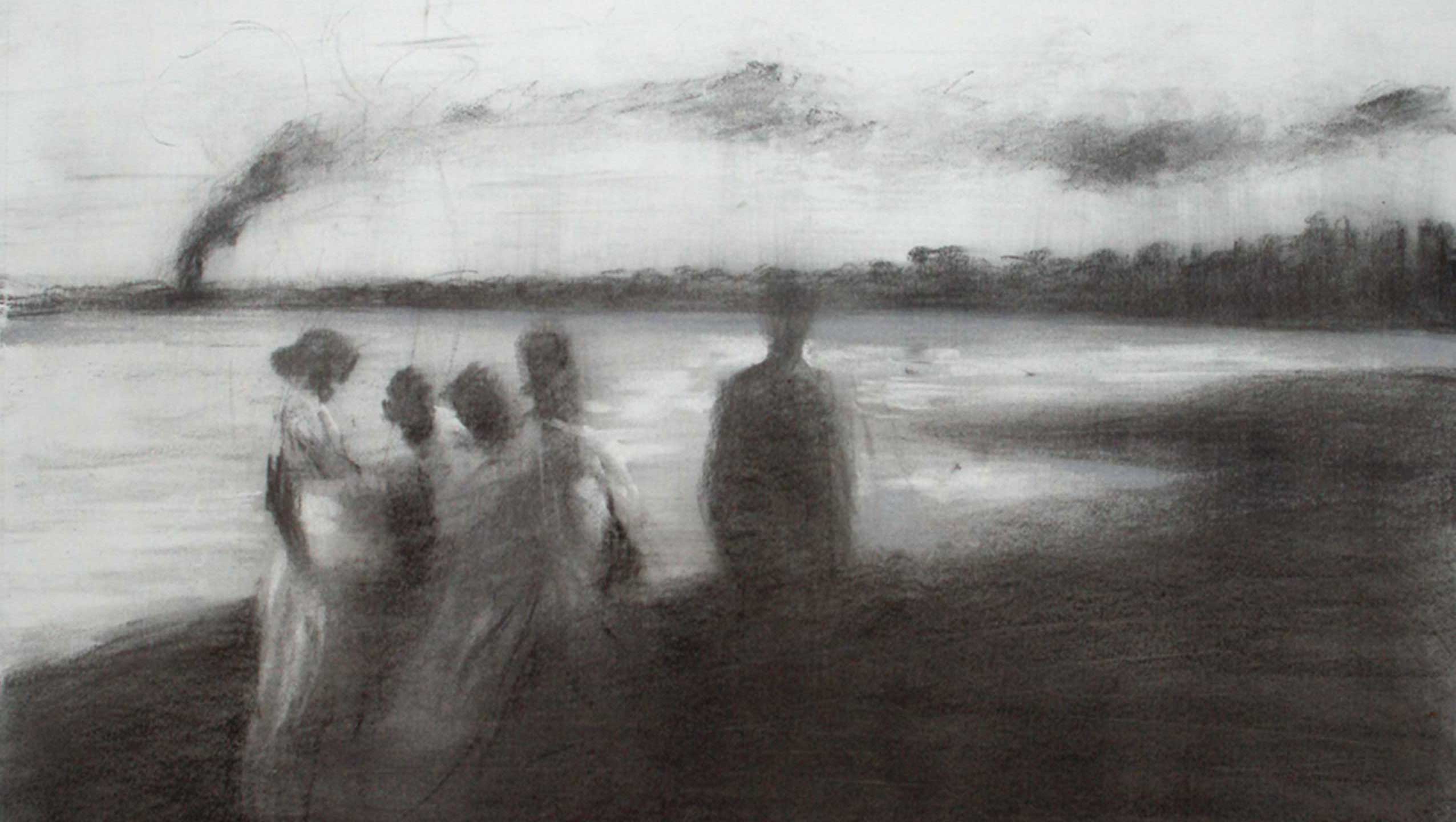
Book Reviews | Tarpaulin Sky Magazine
TELLING YOU WHAT TO THINK SINCE 2003 | IMAGE: NOAH SATERSTROM
Selah Saterstrom’s “Ideal Suggestions: Essays In Divinatory Poetics,” reviewed by Abby Hagler
Abby Hagler reviews Selah Saterstrom's brilliant Ideal Suggestions: Essays In Divinatory Poetics (Essay Press, 2017): "A book dedicated to not only showing the link between the diviner and the writer, but also to helping a reader recognize the diviner within."
Geoffrey Babbitt’s “Appendices Pulled from a Study on Light” reviewed by Michael McKee Green
"Babbitt transmutes the language he was offered through Catholicism into the language of his readings of margins, and in turn, marginalia: the strophe of the book is transmuted into centerpiece: apostrophe. What else but alchemy or poetry could do that?"
Keston Sutherland’s “Whither Russia” reviewed by Lindsey Appell
Lindsey Appell reviews British poet Keston Sutherland’s eighteenth collection, "Whither Russia" (Barque Press, 2017).
Marty Cain’s “Kids of the Black Hole” reviewed by Evan Gray
"[H]ybrid coat of feathers and fur ... bathed in punk rock, metal, old skate ramps, and the gym shower, as well as the toxic landscape of memory that is both lichen-drenched and cut with light. Night terrors shimmer off the page with each long line, each breath, each shift in the wet dirt." -- Evan Gray on Kids of the Black Hole by Marty Cain.
Sarah Rosenthal’s “Lizard” Reviewed By Nicholas Leaskou
"Can a lizard’s thermoregulation be compared to the female human cycle? And is the reptilian parietal eye comparable to the human psychic third eye? By the end of Lizard, readers might feel at one with this fragile, resilient and adaptable survivor."
Fox Frazier-Foley’s “Like Ash In The Air After Something Has Burned” Reviewed By Jasmine An
"Frazier-Foley unflinchingly points out humans’ capacity for cruelty, and the realities of gendered violence that are still familiar to many of us in the present day. Yet, even as the body falls prey to the bodies of others, the voices of these poems press on, seeking in their own bodily dissolution/evolution what they were denied in flesh."
Selah Saterstrom’s “Ideal Suggestions: Essays In Divinatory Poetics,” reviewed by Abby Hagler
Abby Hagler reviews Selah Saterstrom's brilliant Ideal Suggestions: Essays In Divinatory Poetics (Essay Press, 2017): "A book dedicated to not only showing the link between the diviner and the writer, but also to helping a reader recognize the diviner within."
Geoffrey Babbitt’s “Appendices Pulled from a Study on Light” reviewed by Michael McKee Green
"Babbitt transmutes the language he was offered through Catholicism into the language of his readings of margins, and in turn, marginalia: the strophe of the book is transmuted into centerpiece: apostrophe. What else but alchemy or poetry could do that?"
Keston Sutherland’s “Whither Russia” reviewed by Lindsey Appell
Lindsey Appell reviews British poet Keston Sutherland’s eighteenth collection, "Whither Russia" (Barque Press, 2017).
Marty Cain’s “Kids of the Black Hole” reviewed by Evan Gray
"[H]ybrid coat of feathers and fur ... bathed in punk rock, metal, old skate ramps, and the gym shower, as well as the toxic landscape of memory that is both lichen-drenched and cut with light. Night terrors shimmer off the page with each long line, each breath, each shift in the wet dirt." -- Evan Gray on Kids of the Black Hole by Marty Cain.
Sarah Rosenthal’s “Lizard” Reviewed By Nicholas Leaskou
"Can a lizard’s thermoregulation be compared to the female human cycle? And is the reptilian parietal eye comparable to the human psychic third eye? By the end of Lizard, readers might feel at one with this fragile, resilient and adaptable survivor."
Fox Frazier-Foley’s “Like Ash In The Air After Something Has Burned” Reviewed By Jasmine An
"Frazier-Foley unflinchingly points out humans’ capacity for cruelty, and the realities of gendered violence that are still familiar to many of us in the present day. Yet, even as the body falls prey to the bodies of others, the voices of these poems press on, seeking in their own bodily dissolution/evolution what they were denied in flesh."
